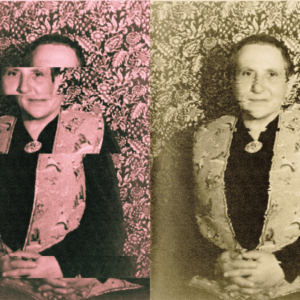
Up in the Attic: A Writers' Haven in Portland
In Search of Literary Community, Outside the MFA
Portland, Oregon is known for its vibrant literary scene, counting Cheryl Strayed, Lidia Yuknavitch, Cari Luna, Kevin Sampsell, Alexis Smith, and many other talented writers among its literary citizens. There are also cultural institutions that make Portland stand out: Powell’s, Literary Arts and the Wordstock Festival, and The Attic Institute of Arts and Letters, to name a few. The poet and critic David Biespiel (and my fellow National Book Critic Circle board member) opened the Attic 17 years ago, aiming to become a “haven for independent writers,” and it has grown into a thriving and important part of Portland’s literary landscape.
What year did The Attic open, and what was the mission?
In 1999. The institute began as the Attic Writers’ Workshop and was established as a haven for writers and a unique knowledge studio dedicated to engaging ways to create, explore, and innovate, to generate and participate in important and lively conversation, and to reflect on ideas, the imagination, and civic life, as well as on artistic, cultural, and social experience.
How many writers have taught for The Attic over the years?
Wow. Good question: dozens. Faculty and Teaching Fellows at the Attic Institute have included: Marc Acito, Matthew Dickman, Merridawn Duckler, Emily Harris, Karen Karbo, Elinor Langer, Jennifer Lauck, Lee Montgomery, Whitney Otto, Paulann Petersen, Jon Raymond, G. Xavier Robillard, Elizabeth Rusch, Kim Stafford, Cheryl Strayed, Vanessa Veselka, Emily Whitman, Wendy Willis, Peter Zuckerman, and others.
How has working at The Attic helped your own writing career?
I’ve had less time to write! So it’s made me more efficient. (I think!)
What are your thoughts on MFA programs vs. writing programs like Sackett, Grub Street, The Loft, The Attic, etc?
We operate outside the logistics, state and private support, and strict pedagogies historically attached to university programs. We offer workshops for all comers and select programs, like the Poets Studio or the Atheneum, for writers who are highly ambitious for their literary pursuits. These writers are on a par with writers who go the MFA route, for sure, and many in our programs at least earn publication, fellowships, residencies, etc., and they participate fully in literary life. We know this not to be the case for the vast majority of MFA graduates who, unfortunately, drop out of literary life. I’m of the opinion that the ways the Attic, for instance, creates community and camaraderie among writers is significantly different than what takes place in low- or high-residency MFA programs. The chief difference is that writers organize their literary activities around their daily lives and do it in the city they live in, work in, raise their families in. That kind of community is the epitome of putting down roots in one’s own backyard.
What are the biggest challenges when it comes to running workshops at The Attic?
In addition to the usual logistics of creating and running workshops, working with faculty and staff, there’s the interesting question of how best to teach creative writing. We are certainly not pedagogues. But we do believe that when you focus on the best of someone’s writing, you teach them to discover their voice and talent. So the biggest challenge is always how best to inspire writes to write their best.
How did you come up with the structure for the workshops?
We have never used a beginning, intermediate, advanced format because we believe that being inclusive is best. But, at the same time, we want to help writers at many stages of their development. So in addition to the normal workshops, we offer some special long-term programs. One is our Atheneum program—a year-long study for a dozen poets, fiction writers, and nonfiction writers. Another is our Poets Studio that is essentially a workshop that runs for 40 weeks in a row. We also, from time to time, offer six-month novel-in-progress or nonfiction-in-progress manuscript workshops.
Can you share any anecdotes from the classes over the years?
We have had a good handful of writers do something like this: they arrive to take a first class feeling that they want to reorient their lives back to their writing. They take a few workshops and put some wind in the sails. Then they get accepted into one of our longer programs—the Atheneum or Poets Studio—and make headway toward completing a manuscript. Then, that manuscript gets taken by a publisher and becomes a book. And then, for some, they become teaching fellows or faculty at the Attic Institute. These writers demonstrate that dedication and discipline and working within a community go a long way to building a literary life.
I'm interested in how writing programs help shape a literary community. What does community mean to you, and how does the Attic promote community for both instructors and students?
Portland is one of the world’s thriving literary centers right now, and the Attic Institute of Arts and Letters has been an engine for that growth over the last 15 years. I mean, I can’t go to a reading in this city without bumping into some Attic alumni. So we both forge literary community and then become a part of it too. We want writers to feel connected—first to their writing and then through that attention and ambition to other writers and their work as well. That’s the cycle of community for us.
Michele Filgate
Michele Filgate is the editor of What My Mother and I Don’t Talk About and What My Father and I Don’t Talk About. Her writing has appeared in Longreads, Poets & Writers, The Washington Post, Los Angeles Times, The Boston Globe, The Paris Review Daily, Tin House, Gulf Coast, Oprah Daily, and many other publications. She received her MFA in Fiction from NYU, where she was the recipient of the Stein Fellowship. She teaches at The New School.



















